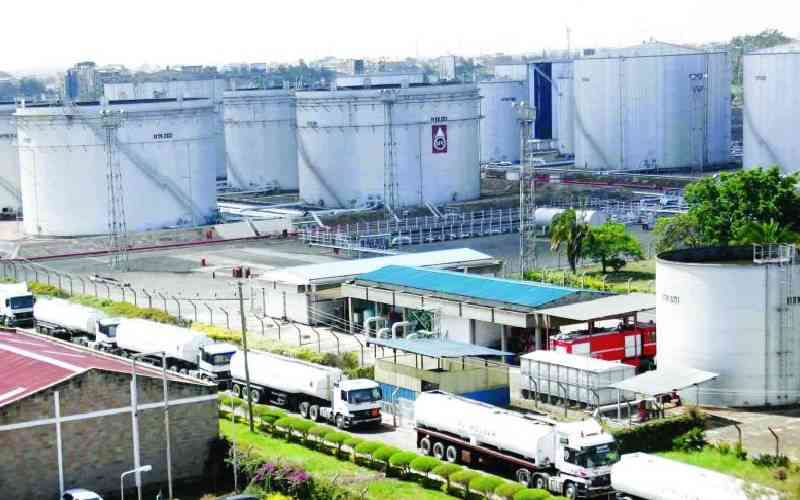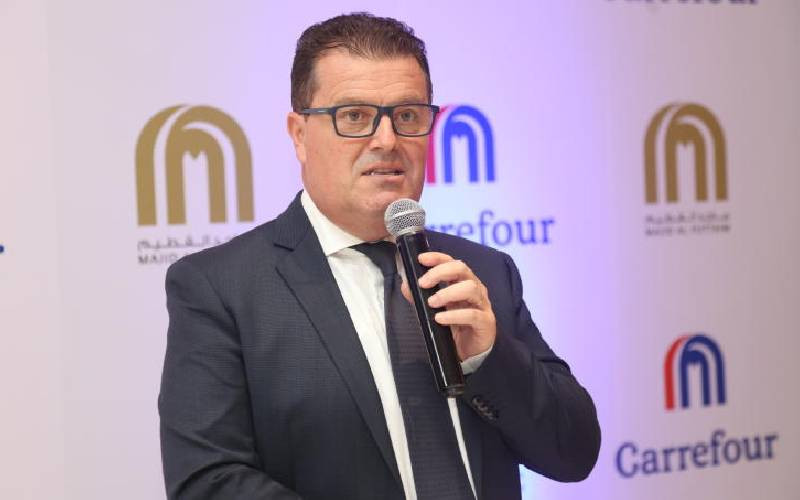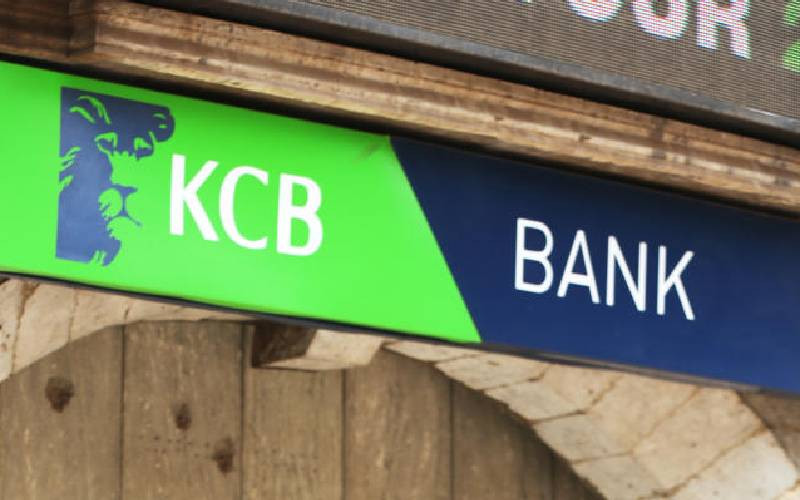
While the recently unveiled government-to-government petroleum import deal has the potential to reduce pump prices, there are concerns that the gains might not be passed to consumers due to how the deal has been structured.
The deal, it is now emerging, has given some of the players along the supply chain discretion to decide the foreign exchange rate that they can charge.
This means that in the event the local currency makes gains on the dollar, a highly likely scenario, the players might not pass these benefits to the oil marketing companies (OMCs) and in turn, sustain high pump prices.
The government-to-government import deal was hatched to reduce demand on the shilling and in turn deal with the shortage experienced over the last months.
The shortage has been key in the free fall of the shilling that was last week trading at Sh131.27 to the dollar on Friday.
By accessing petroleum products on credit, the government had hoped to reduce demand on the dollar, with the oil industry being the largest consumer of forex in the market, using approximately $500 million (Sh64 billion) every month.
The three suppliers that the government selected - Saudi Aramco, Emirates National Oil Company (Enoc) and Abu Dhabi Natonal Oil Company (Adnoc) - will give the country products on a six-month credit period, which will significantly reduce demand. Analysts note that this is likely to see the shilling strengthen.
The three Gulf companies will nominate local firms to handle business on their behalf in Kenya, including selling products to local oil firms in local currency, converting this to dollars over time and paying the suppliers once the six-month credit period expires.
Adnoc has already selected Gulf Energy to undertake these duties on its behalf.
An industry player, however, told Standard Business that this gain might not be passed to consumers. The foreign exchange rate and price of crude oil are among the biggest determinants of the movement of pump prices that the Energy and Petroleum Regulatory Authority (Epra) announces every month.
The Energy and Petroleum Ministry, however, says any benefit will be passed to the consumers.
While noting that the deal will be good for the country and shield the shilling from further slide, the source however noted that there were certain aspects of the deal that remain hazy.
"The deal is good for the country as it will save the shilling from further weakening while saving the oil marketers the hassle of looking for the scarce dollars."
"It is, however, bad in that while it has immense potential to lower consumer prices, without a predetermined exchange rate in place, the consumer might not get any benefits at the pump. The seller (the local OMC nominated by the supplier) might not pass the benefits of the shilling strengthening against the dollar," said the source who offered insights on the condition of anonymity for fear of his firm being victimised.
"The OMC nominated by the supplier could end up determining the exchange rate at which the buyers will pay for the product. The company could also determine the forex rate at which it will pay the supplier (Adnoc),"
"It will collect at a predetermined rate, make a gain and possibly a good one depending on how the shilling performs and it is likely to post strong gains once the fuel brought under the plan hits the market. After a few months, the exchange rate will significantly drop," added the source.
The source also noted that the government-to-government deal could also lead to the death of the Open Tender System (OTS).
At the OTS, the oil firms compete to import products on behalf of the industry with the firm with the lowest bid for premium and freight getting the job. The price of petroleum products is based on the prices at the platts benchmark
"The deal could as well be the end of the OTS. The system is competitive. There are certain aspects that might be improved but the system has generally been good for both industry and consumers," said the source.
"The benefits of OTS have now been nullified over the next six months and possibly longer because the ministry might consider increasingly using the government-to-government method going forward."
This is even as tender documents show that there were bidders that offered better terms including a 270-day credit period compared to the 180 days period that the government has been offered by the three National Oil Companies from the United Arab Emirates and Saudi Arabia.
Other bidders included Swiss-based energy multinational firm Vitol had bid alongside global commodities trader Trafigura which were unsuccessful, the Ministry would later say, because they are privately owned while the State was looking to work with national oil companies (NOCs).
The other unsuccessful NOCs were the State Oil Company of the Republic of Azerbaijan (Socar) and one of the Omani national oil companies.
The Energy and Petroleum Ministry recently told a parliamentary committee that Kenya was pursuing a government-to-government deal and hence this disqualified the likes of Vitol and Trafigura.
Why we structured this as a government-to-government deal was out of the need to get national oil companies from oil-producing countries with deep pockets who could be willing to give us products on credit for later payment so that we get out of the situation over this (credit) period," said Energy CS Davis Chirchir at a meeting with the National Assembly's Committee on Energy last week.
"Even as we chose the three, we chose the best prices across the seven bidders."
He also said that the government was not disbanding OTS and instead the regulations gazetted recently allowed for both the OTS and government-to-government system to work in a complementary manner. He noted that the government contracting state-owned national oil companies from the Gulf were to primarily address the shilling-dollar issue.
"We have been using the OTS because if everyone was to bring in their own cargo, they would bring in small ships and the price (for shipping) would be two or three times higher, so we bring big ships of between 85,000 to 100,000 metric and the price of shipping will be lower and this is factored in the retail price build-up," he said.
"We do not have a problem with the petroleum industry in Kenya. It is working well, it has been working well with the OTS. It has however been causing significant pressure in the financial market and the leadership has decided to look into alternatives of procuring petroleum products into the country."
"To ensure that we slow down the sliding of the shilling against the dollar by releasing the pressure it causes as well as ensure availability of the products at the petrol stations."
Epra Director General Daniel Kiptoo assured that the regulator would factor the gains that the shilling will make into the prices of petroleum products. Epra reviews pump prices every month and forex is among the key factors that are taken into consideration.
"In the event that there has been an appreciation or depreciation of the shilling in respect to the dollar, we (the regulator) will make a forex adjustment in the pump price akin to what we do for electricity," said Kiptoo.
"If there will be a strengthening of the shilling, and we believe there will be a strengthening of the shilling on account of taking out 30 per cent demand of the dollar in the economy, then that benefit will be passed on to Wanjiku at the pump. In case of depreciation, which is unlikely from where we sit, then that will also be passed to Wanjiku at the pump."
In computing the retail prices, Epra uses the average rate that oil firms use to buy the dollar.
 The Standard Group Plc is a multi-media organization with investments in media platforms spanning newspaper print
operations, television, radio broadcasting, digital and online services. The Standard Group is recognized as a
leading multi-media house in Kenya with a key influence in matters of national and international interest.
The Standard Group Plc is a multi-media organization with investments in media platforms spanning newspaper print
operations, television, radio broadcasting, digital and online services. The Standard Group is recognized as a
leading multi-media house in Kenya with a key influence in matters of national and international interest.











